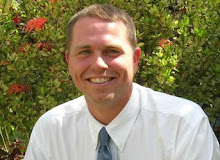Be a student so long as you still have something to learn, and this will mean all your life.
Henry L. Doherty
As an educator, I am blessed to be able to witness and experience the wonder of learning on a daily basis. Schools are learning organizations, and successful principals, teachers and students are always looking for ways to improve their own learning. I believe that everyone within a school community is a learner first and foremost, and that it is the learning process which allows schools to achieve their mission. Just as individuals within the community must seek to improve their practice, schools should have structures in place to review their progress and implement changes that are meant to improve learning. As an educational leader, it is my responsibility to foster a learning culture that seeks to continually improve the school’s ability to educate the students in our care.
Curriculum is the framework to identify and publicize what a school community believes is important for their students to know and be able to do. It is important that these documents reflect skills, knowledge and performance that will allow for our students to be successful in an ever changing, complex global society. Although content knowledge is extremely important, risk taking, critical thinking, problem solving and leadership need to be embedded in the daily tasks of all classes at every level. Assessment lies at the heart of educational practice and I believe that when properly implemented, assessment drives the learning process for students. Classroom data is one of the greatest tools that teachers have to improve learning, and it is imperative that educators build assessment plans that provide them with this valuable information on a daily basis. The world is changing at a rate where we are unable to predict the future, and therefore we must prepare our students to utilize their knowledge and skills to develop solutions to unfamiliar situations. As principal, I must work collaboratively with my school community to create effective curriculum documents, and facilitate the development of assessments that prepare all students to become effective members of a global community.
Schools function as an interconnected community and thrive when all stakeholders are involved in the implementation of their mission. Successful schools are able to develop and utilize the various talents and expertise of the entire school community. Schools which encourage open dialogue and involvement of all within the decision making process are more apt to engender trust and support. In addition, collaborative decisions are much easier to implement and are more likely to become part of the institutional framework. As a leader, my role is focused on supporting faculty members, and I believe that empowering teachers to identify areas of growth and develop plans of action, is the most successful path to building a cohesive school community focused on the improvement of student learning. Successful schools set high expectations for all stakeholders and believe that everyone has a responsibility to ensure that they are doing their part to help the school realize it’s goals.
The core business of schools is to promote the learning of their students and this belief should pervade the thoughts of the entire community, and be a central component of the decision making process at every level. When all partners are working toward a common purpose, the chance for success increases dramatically. The best approach to education in the twenty-first century is a collaborative one that involves continually assessing and addressing the needs of the children, their families, the school and the community. The ultimate return is the achievement of my personal vision: challenging all learners to reach their individual potential and preparing them to realize their role in a global community.





